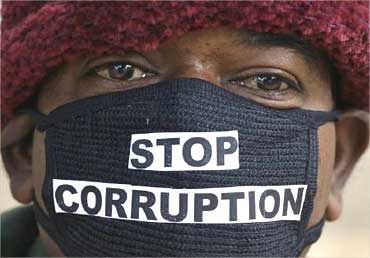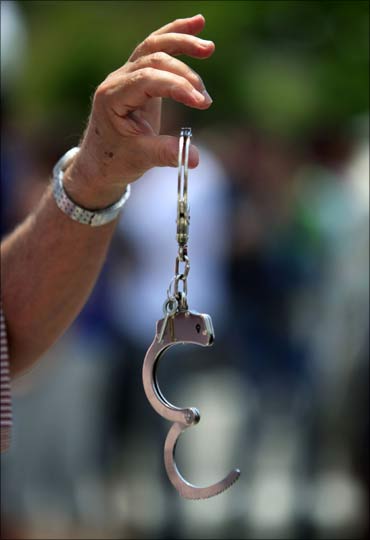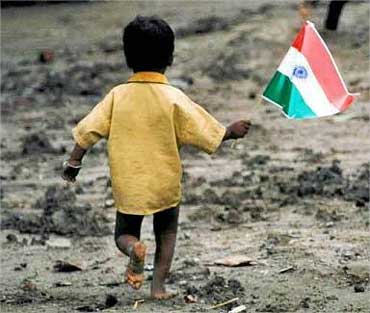Photographs: Reuters
The poll conducted by US-based performance management consultancy firm, Gallup, said in 2010, 47 per cent of Indians said the level of corruption in the country was higher than it was five years earlier, while 27 per cent found it was about the same.
The support for Anna Hazare and anti-graft protests shows Indians recognise the problem is endemic, the survey said.
...
47% Indians say corruption got worse in 5 years
Image: 78 per cent say corruption is widespread within the government.Photographs: Reuters
According to the poll, following recent high-profile scandals - including a collusion scheme that landed India's telecom minister in jail, and allegations that the planners of last year's Commonwealth games stole billions - Indians have begun to act on their frustration with the country's corruption problem.
Asked whether they thought the government was doing enough to fight corruption, more than one-third of Indians (35 per cent) said yes, while half (50 per cent) said no.
...
47% Indians say corruption got worse in 5 years
Image: Bribery remains widespread.Photographs: Reuters
Unemployed Indians were also among the most likely to say they recently found themselves in a situation in which they needed to pay a bribe.
Bribery remains widespread in Indian society; about one in five Indians (21 per cent) overall said they had faced a situation in the past 12 months in which a bribe was required to solve a problem.
...
47% Indians say corruption got worse in 5 years
Image: Indians do not believe the problem is getting any better.Photographs: Reuters
Following recent high-profile scandals - including a collusion scheme that landed India's telecom minister in jail, and allegations that the planners of last year's Commonwealth games stole billions - Indians have begun to act on their frustration with the country's corruption problem.
Survey results reveal Indians do not believe the problem is getting any better and many have had to deal with corruption personally.
However, the likelihood that systemic change can be implemented largely depends on whether Indians' underlying dissatisfaction produces sustained public pressure for reform.





article